-
 Bitcoin
Bitcoin $113900
-1.39% -
 Ethereum
Ethereum $3517
-4.15% -
 XRP
XRP $3.009
1.59% -
 Tether USDt
Tether USDt $0.9997
-0.04% -
 BNB
BNB $766.8
-1.41% -
 Solana
Solana $164.6
-2.38% -
 USDC
USDC $0.9998
-0.02% -
 TRON
TRON $0.3277
0.65% -
 Dogecoin
Dogecoin $0.2023
-1.67% -
 Cardano
Cardano $0.7246
0.05% -
 Hyperliquid
Hyperliquid $38.27
-4.77% -
 Sui
Sui $3.528
-0.52% -
 Stellar
Stellar $0.3890
-0.73% -
 Chainlink
Chainlink $16.16
-2.69% -
 Bitcoin Cash
Bitcoin Cash $539.9
-4.38% -
 Hedera
Hedera $0.2425
-2.00% -
 Avalanche
Avalanche $21.71
-0.97% -
 Toncoin
Toncoin $3.662
5.73% -
 Ethena USDe
Ethena USDe $1.000
-0.02% -
 UNUS SED LEO
UNUS SED LEO $8.964
0.35% -
 Litecoin
Litecoin $107.7
2.33% -
 Shiba Inu
Shiba Inu $0.00001223
-0.40% -
 Polkadot
Polkadot $3.617
-0.97% -
 Uniswap
Uniswap $9.052
-2.49% -
 Monero
Monero $295.1
-3.79% -
 Dai
Dai $0.9999
0.00% -
 Bitget Token
Bitget Token $4.315
-1.85% -
 Pepe
Pepe $0.00001060
0.11% -
 Cronos
Cronos $0.1342
-2.72% -
 Aave
Aave $256.0
-0.87%
What is a decentralized domain name service? How does it achieve Web3 identity management?
Decentralized DNS uses blockchain to manage domain names, enhancing security and enabling user-controlled Web3 identity management.
Apr 06, 2025 at 11:01 pm
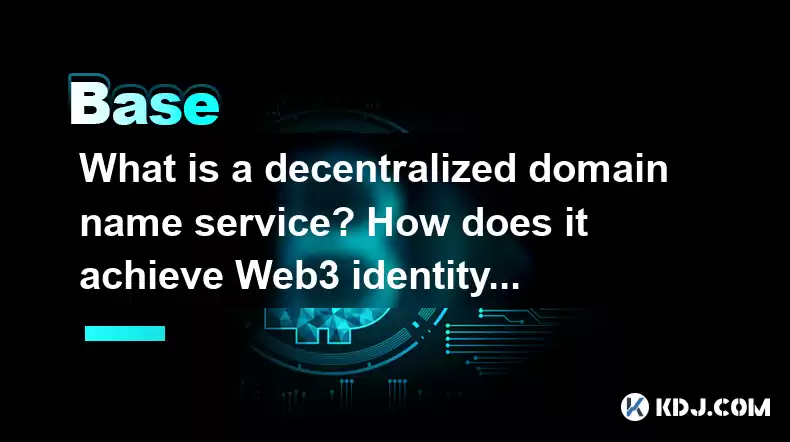
A decentralized domain name service (DNS) represents a pivotal shift from traditional centralized systems to a more secure, user-controlled, and transparent framework within the cryptocurrency and blockchain ecosystem. Decentralized DNS leverages blockchain technology to manage domain names, ensuring that control over these digital assets remains in the hands of the users rather than centralized authorities. This system not only enhances security but also plays a crucial role in achieving Web3 identity management, which is essential for the decentralized internet.
Understanding Decentralized DNS
Traditional DNS systems rely on centralized servers to translate human-readable domain names into IP addresses. In contrast, decentralized DNS uses blockchain technology to store domain name records. This means that instead of a single entity controlling the DNS, the responsibility is distributed across a network of nodes. Each domain name and its associated data are recorded on the blockchain, making it immutable and resistant to censorship or manipulation.
Key Features of Decentralized DNS
- Immutable Records: Once a domain name is registered on the blockchain, its record cannot be altered without the owner's consent. This feature ensures that domain names are secure and cannot be hijacked or taken down by third parties.
- User Control: Users have full control over their domain names. They can manage, transfer, or sell their domains without needing to go through a centralized registrar.
- Transparency: All transactions and changes related to domain names are recorded on the blockchain, making the process transparent and verifiable by anyone.
How Decentralized DNS Achieves Web3 Identity Management
Web3, the next generation of the internet, emphasizes decentralization, privacy, and user sovereignty. Decentralized DNS is a cornerstone of Web3 identity management because it allows users to own and control their digital identities. Here’s how it works:
- Self-Sovereign Identity: With decentralized DNS, users can create and manage their own digital identities without relying on centralized services. This self-sovereign identity model is crucial for Web3, as it empowers users to control their personal data and online presence.
- Interoperability: Decentralized DNS enables seamless interaction between different blockchain networks and decentralized applications (dApps). Users can use their domain names across various platforms, enhancing the interoperability of Web3 ecosystems.
- Privacy and Security: By using blockchain technology, decentralized DNS ensures that user data is encrypted and secure. This reduces the risk of data breaches and unauthorized access, which is a significant concern in traditional centralized systems.
Implementing Decentralized DNS
To implement decentralized DNS, users need to follow a series of steps that involve interacting with blockchain networks and decentralized platforms. Here’s a detailed guide on how to register a decentralized domain name:
- Choose a Decentralized DNS Platform: There are several platforms that offer decentralized DNS services, such as Ethereum Name Service (ENS) and Unstoppable Domains. Choose a platform that aligns with your needs.
- Set Up a Wallet: You’ll need a cryptocurrency wallet that supports the blockchain network of your chosen platform. For example, if you’re using ENS, you’ll need an Ethereum-compatible wallet like MetaMask.
- Fund Your Wallet: Ensure your wallet has enough cryptocurrency to cover the registration fees. For ENS, you’ll need ETH; for Unstoppable Domains, you might need other cryptocurrencies like ZIL or BTC.
- Register Your Domain: Navigate to the platform’s website and follow the instructions to search for and register your desired domain name. This typically involves entering the domain name, confirming the registration, and paying the fee.
- Manage Your Domain: Once registered, you can manage your domain through the platform’s interface. This includes setting up records, transferring ownership, or renewing the domain.
Benefits of Decentralized DNS for Web3
The adoption of decentralized DNS brings several benefits to the Web3 ecosystem, particularly in the realm of identity management:
- Enhanced Security: By leveraging blockchain technology, decentralized DNS provides a higher level of security compared to traditional DNS. The immutability of blockchain records ensures that domain names and associated data are protected from tampering.
- Decentralized Control: Users have complete control over their domain names and digital identities. This decentralization aligns with the core principles of Web3, promoting a more democratic and user-centric internet.
- Reduced Dependency on Centralized Services: With decentralized DNS, users are not reliant on centralized registrars or hosting services. This reduces the risk of service disruptions and censorship, fostering a more resilient internet infrastructure.
Challenges and Considerations
While decentralized DNS offers numerous advantages, there are also challenges and considerations that users should be aware of:
- Technical Complexity: Managing decentralized DNS can be more complex than using traditional DNS services. Users need to understand blockchain technology and manage their cryptocurrency wallets effectively.
- Cost: Registering and maintaining decentralized domain names can be more expensive than traditional domain names, especially due to blockchain transaction fees.
- Adoption and Interoperability: While decentralized DNS is gaining traction, it still faces challenges in terms of widespread adoption and interoperability with existing internet infrastructure.
Frequently Asked Questions
Q: Can I use a decentralized domain name with traditional websites?
A: Yes, you can use a decentralized domain name with traditional websites, but you may need to set up additional configurations to ensure compatibility. Some decentralized DNS platforms offer tools to help with this process.
Q: How do I transfer ownership of a decentralized domain name?
A: To transfer ownership of a decentralized domain name, you typically need to initiate a transaction on the blockchain through the platform’s interface. This involves specifying the new owner’s wallet address and confirming the transfer with your private key.
Q: Are decentralized domain names permanent?
A: Decentralized domain names are not necessarily permanent. They often require periodic renewals, similar to traditional domain names. However, the renewal process is managed through the blockchain, ensuring that users maintain control over their domains.
Q: Can I use a decentralized domain name for email?
A: Yes, some decentralized DNS platforms support email services. You can set up email records for your decentralized domain name, allowing you to use it for email communication. However, the availability of this feature may vary depending on the platform.
Disclaimer:info@kdj.com
The information provided is not trading advice. kdj.com does not assume any responsibility for any investments made based on the information provided in this article. Cryptocurrencies are highly volatile and it is highly recommended that you invest with caution after thorough research!
If you believe that the content used on this website infringes your copyright, please contact us immediately (info@kdj.com) and we will delete it promptly.
- Bitcoin Strategy: Saylor's Not Hoarding, He's Building an Empire
- 2025-08-02 22:30:12
- Bitcoin Bloodbath: Macro Pressures and Liquidations Unleash Crypto Chaos
- 2025-08-02 22:30:12
- Worldcoin, Identity, WLD Price: Decoding the NYC Crypto Buzz
- 2025-08-02 21:10:12
- Shiba Inu: Utility and Community Strength Drive Crypto's Evolution
- 2025-08-02 21:50:12
- Crypto Donations, Trump PAC, and Bitcoin: A New York Minute on Political Coin
- 2025-08-02 20:30:12
- Crypto Market Under Pressure: Bearish Momentum and Rising Volatility Take Hold
- 2025-08-02 20:30:12
Related knowledge
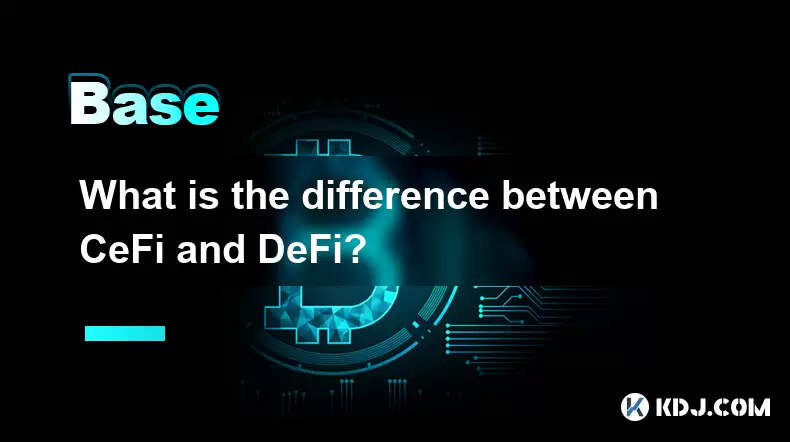
What is the difference between CeFi and DeFi?
Jul 22,2025 at 12:28am
Understanding CeFi and DeFiIn the world of cryptocurrency, CeFi (Centralized Finance) and DeFi (Decentralized Finance) represent two distinct financia...

How to qualify for potential crypto airdrops?
Jul 23,2025 at 06:49am
Understanding What Crypto Airdrops AreCrypto airdrops refer to the distribution of free tokens or coins to a large number of wallet addresses, often u...
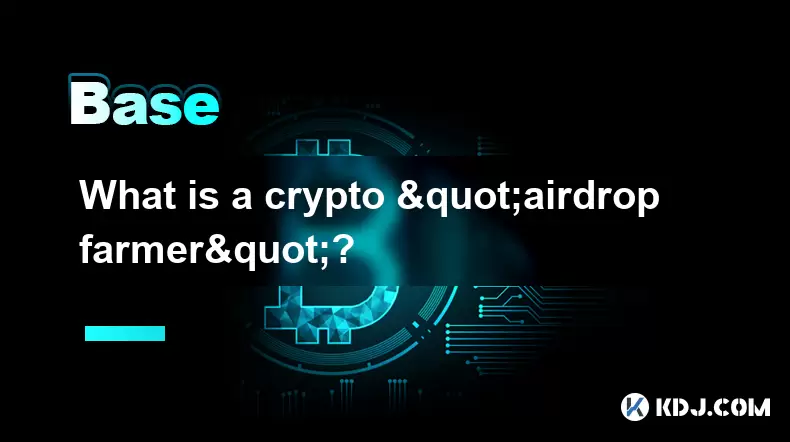
What is a crypto "airdrop farmer"?
Jul 24,2025 at 10:22pm
Understanding the Role of a Crypto 'Airdrop Farmer'A crypto 'airdrop farmer' refers to an individual who actively participates in cryptocurrency airdr...
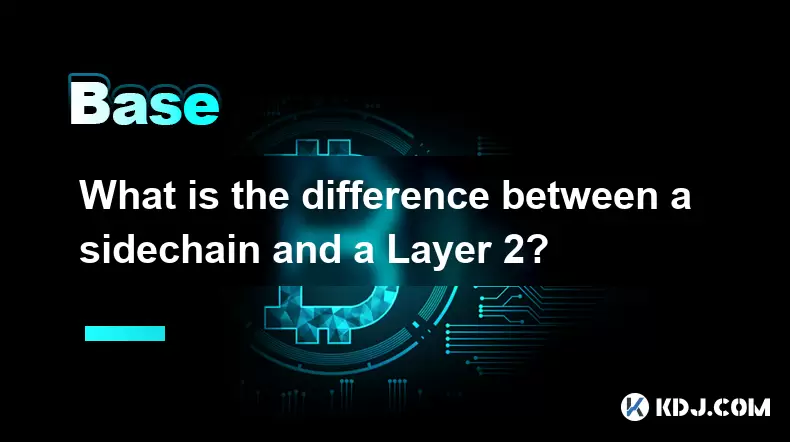
What is the difference between a sidechain and a Layer 2?
Jul 20,2025 at 11:35pm
Understanding the Concept of SidechainsA sidechain is a separate blockchain that runs parallel to the main blockchain, typically the mainnet of a cryp...
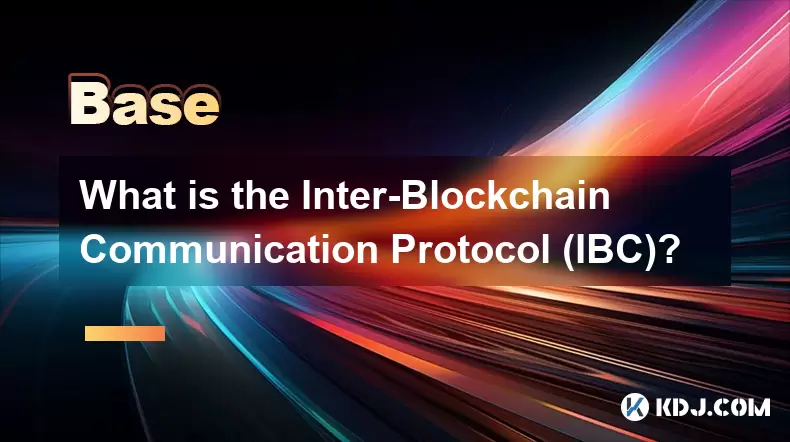
What is the Inter-Blockchain Communication Protocol (IBC)?
Jul 19,2025 at 10:43am
Understanding the Inter-Blockchain Communication Protocol (IBC)The Inter-Blockchain Communication Protocol (IBC) is a cross-chain communication protoc...
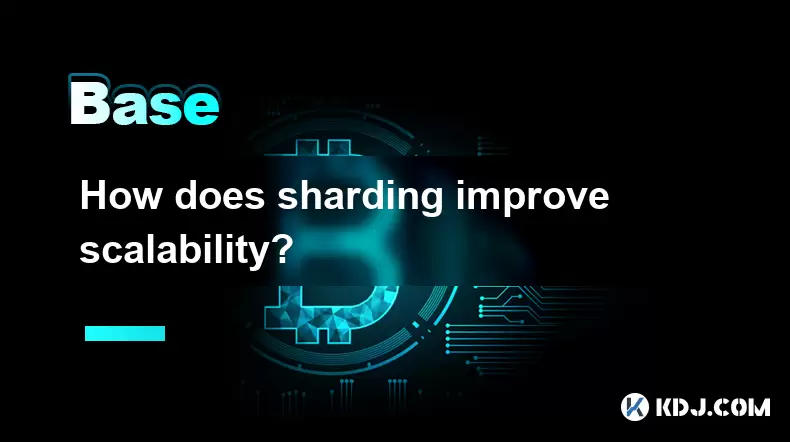
How does sharding improve scalability?
Jul 20,2025 at 01:21am
Understanding Sharding in BlockchainSharding is a database partitioning technique that is increasingly being adopted in blockchain technology to enhan...

What is the difference between CeFi and DeFi?
Jul 22,2025 at 12:28am
Understanding CeFi and DeFiIn the world of cryptocurrency, CeFi (Centralized Finance) and DeFi (Decentralized Finance) represent two distinct financia...

How to qualify for potential crypto airdrops?
Jul 23,2025 at 06:49am
Understanding What Crypto Airdrops AreCrypto airdrops refer to the distribution of free tokens or coins to a large number of wallet addresses, often u...

What is a crypto "airdrop farmer"?
Jul 24,2025 at 10:22pm
Understanding the Role of a Crypto 'Airdrop Farmer'A crypto 'airdrop farmer' refers to an individual who actively participates in cryptocurrency airdr...

What is the difference between a sidechain and a Layer 2?
Jul 20,2025 at 11:35pm
Understanding the Concept of SidechainsA sidechain is a separate blockchain that runs parallel to the main blockchain, typically the mainnet of a cryp...

What is the Inter-Blockchain Communication Protocol (IBC)?
Jul 19,2025 at 10:43am
Understanding the Inter-Blockchain Communication Protocol (IBC)The Inter-Blockchain Communication Protocol (IBC) is a cross-chain communication protoc...

How does sharding improve scalability?
Jul 20,2025 at 01:21am
Understanding Sharding in BlockchainSharding is a database partitioning technique that is increasingly being adopted in blockchain technology to enhan...
See all articles

























































































